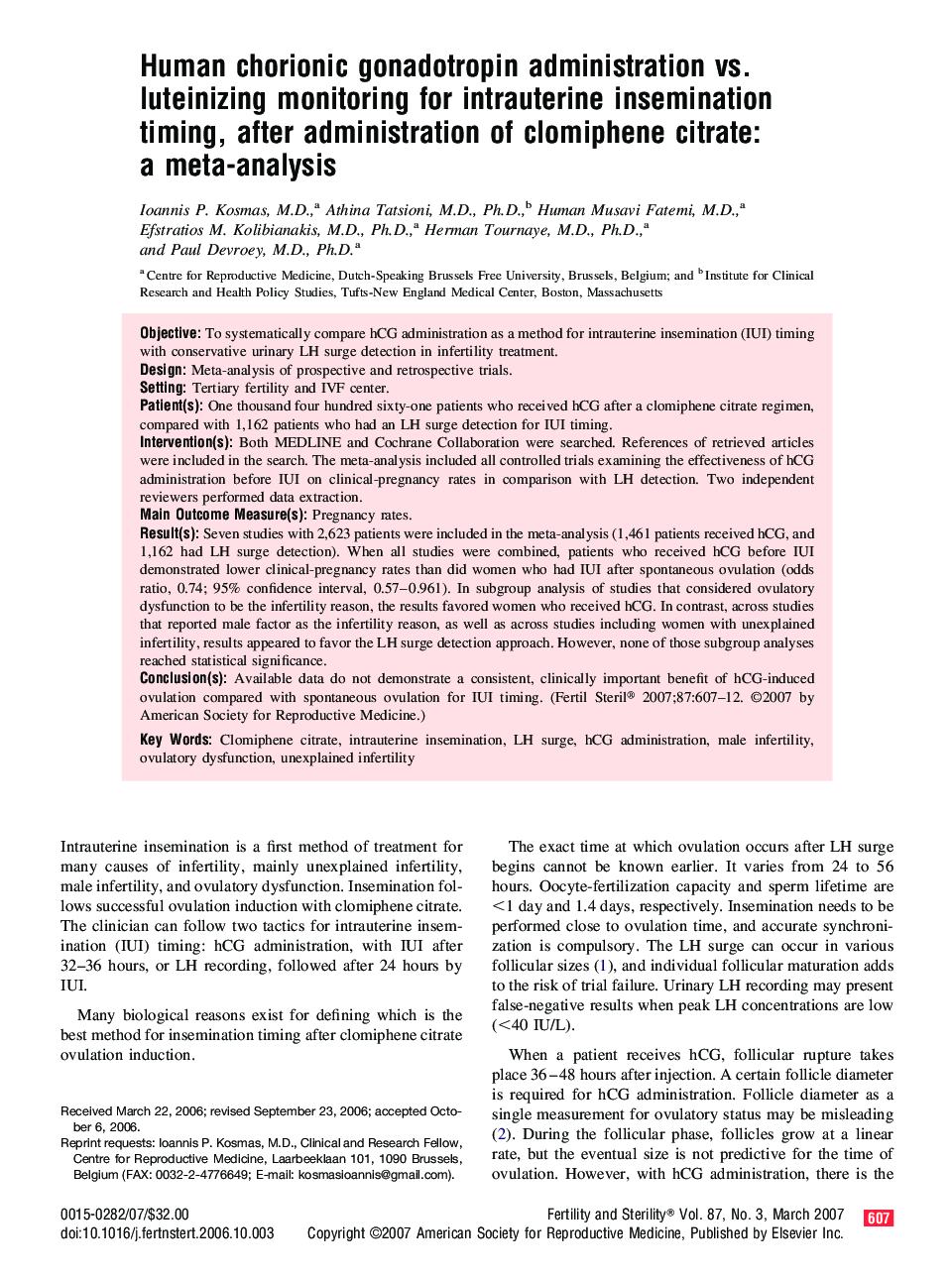| Article ID | Journal | Published Year | Pages | File Type |
|---|---|---|---|---|
| 3940151 | Fertility and Sterility | 2007 | 6 Pages |
ObjectiveTo systematically compare hCG administration as a method for intrauterine insemination (IUI) timing with conservative urinary LH surge detection in infertility treatment.DesignMeta-analysis of prospective and retrospective trials.SettingTertiary fertility and IVF center.Patient(s)One thousand four hundred sixty-one patients who received hCG after a clomiphene citrate regimen, compared with 1,162 patients who had an LH surge detection for IUI timing.Intervention(s)Both MEDLINE and Cochrane Collaboration were searched. References of retrieved articles were included in the search. The meta-analysis included all controlled trials examining the effectiveness of hCG administration before IUI on clinical-pregnancy rates in comparison with LH detection. Two independent reviewers performed data extraction.Main Outcome Measure(s)Pregnancy rates.Result(s)Seven studies with 2,623 patients were included in the meta-analysis (1,461 patients received hCG, and 1,162 had LH surge detection). When all studies were combined, patients who received hCG before IUI demonstrated lower clinical-pregnancy rates than did women who had IUI after spontaneous ovulation (odds ratio, 0.74; 95% confidence interval, 0.57–0.961). In subgroup analysis of studies that considered ovulatory dysfunction to be the infertility reason, the results favored women who received hCG. In contrast, across studies that reported male factor as the infertility reason, as well as across studies including women with unexplained infertility, results appeared to favor the LH surge detection approach. However, none of those subgroup analyses reached statistical significance.Conclusion(s)Available data do not demonstrate a consistent, clinically important benefit of hCG-induced ovulation compared with spontaneous ovulation for IUI timing.
